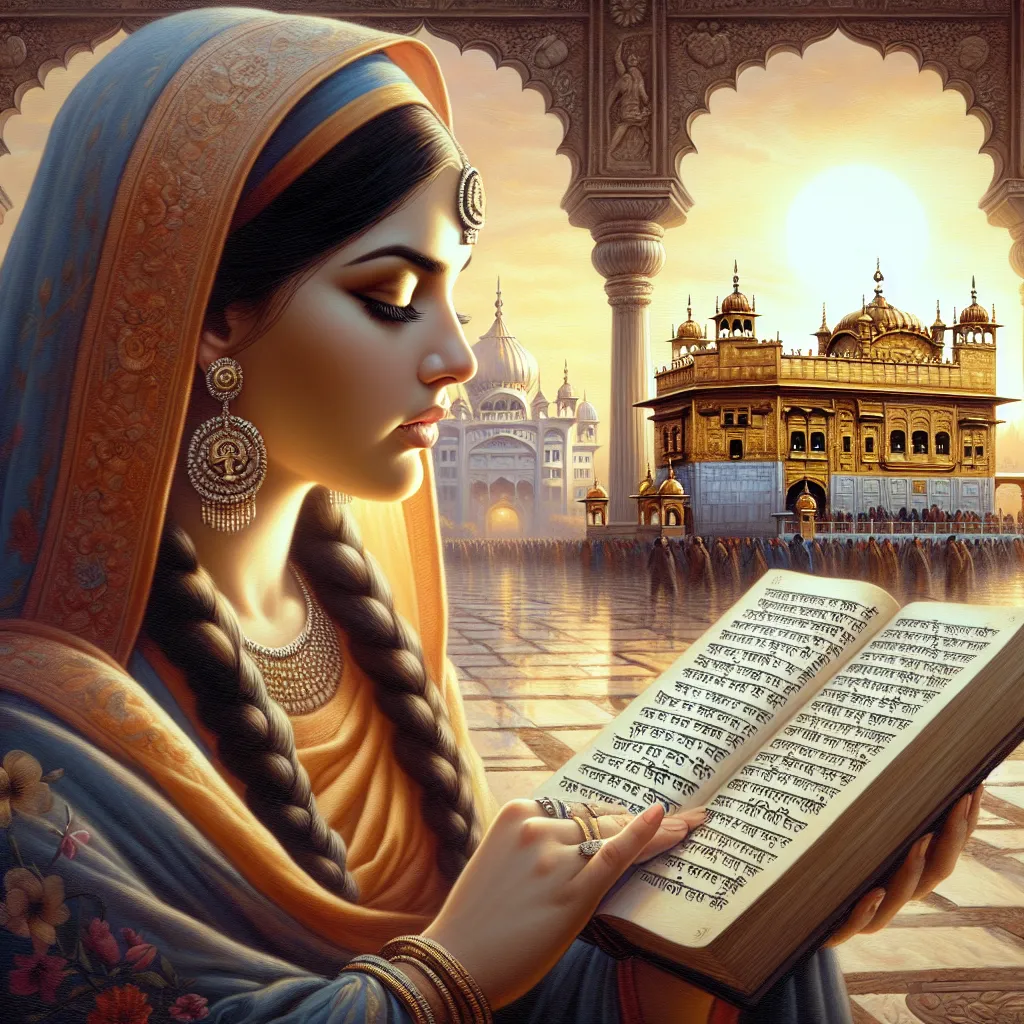
- Published on
- Authors

- Name
- You
The Role of Women in Sikhism: Equality and Empowerment
Sikhism, a monotheistic religion founded in the 15th century by Guru Nanak in the Punjab region, emphasizes the principles of equality, love, and justice. One of the most progressive aspects of Sikh teachings is the elevated status and respect accorded to women. This article delves into the role of women in Sikhism, examining both religious tenets and historical contributions.
Teachings on Gender Equality
Foundational Beliefs
From its inception, Sikhism has advocated for gender equality. Key teachings from the Sikh Gurus highlight this:
- Guru Nanak Dev Ji proclaimed, "Why call her bad? From her, kings are born," emphasizing that men and women are inherently equal.
- Guru Amar Das Ji institutionalized the concept of Langar (community kitchen), ensuring everyone, regardless of gender, dined together to practice equality.
- Guru Gobind Singh Ji conferred the same military and spiritual duties to Singhs (men) and Kaurs (women), thereby reinforcing gender parity.
Scriptural Insights
The Guru Granth Sahib, the holy scripture of Sikhism, contains numerous verses depicting the equality of women:
| Verse | Interpretation |
|---|---|
| "So kyo manda aakheeye, jit jamme raajaan." | Women, who give birth to even kings, should not be called bad. |
| "Bhand jammeeai bhand nimmeeai, bhand mangan veeahu." | We are born of woman, conceived in woman, and we are engaged and married to woman. |
Historical Contributions of Sikh Women
Mata Khivi Ji
Mata Khivi Ji, the wife of Guru Angad Dev Ji, played a crucial role in organizing and supervising the Langar. Her leadership ensured that the sacred practice ran smoothly and inclusively.
Mai Bhago Ji
Mai Bhago Ji was a formidable warrior who led Sikh soldiers into battle against the Mughals. She is revered for her bravery and commitment to Sikh principles, proving that women could be both spiritual and martial leaders.
Bibi Nanaki Ji
Bibi Nanaki, the elder sister of Guru Nanak Dev Ji, was his first devotee. Her unwavering support and encouragement were pivotal in the establishment of the Sikh faith. She is often commemorated for her spiritual insight and nurturing nature.
Modern-Day Impact
Advancements and Continuing Challenges
In contemporary times, Sikh women continue to break barriers and lead in various fields, including science, politics, and arts. However, challenges remain regarding societal norms and cultural practices that sometimes conflict with the egalitarian principles of Sikhism.
Empowerment Through Education and Community
Modern Sikh communities emphasize education and empowerment programs for women, fostering environments where they can thrive without discrimination. Workshops, seminars, and community initiatives are continually developed to support the growth and leadership of Sikh women.
Confluence of Science and Mysticism
Integrating scientific principles with mystical wisdom, contemporary Sikh scholars and practitioners explore how the spirituality and equality espoused in Sikhism align with modern understandings of human rights and gender studies.
- Neuroscientific Findings: Recent studies in neuroscience affirm that promoting gender equality improves societal well-being and mental health, resonating with the holistic approach of Sikh teachings.
- Quantum Physics and Oneness: Quantum physics' notion of interconnectedness mirrors Sikhism’s concept of Ik Onkar (One God), suggesting that equality and unity are fundamental to societal harmony.
Conclusion
The role of women in Sikhism, underpinned by robust teachings of equality and empowerment, serves as a beacon for gender equity worldwide. By integrating advanced scientific discoveries with age-old mystical wisdom, we find that true progress lies in honoring and uplifting every individual, irrespective of gender.
The integration of these elements offers not only a historical perspective but also a contemporary view, making Sikh teachings on gender equality both timeless and relevant. The contributions of Sikh women across centuries stand testament to the empowered status envisaged by the Gurus, encouraging all humanity towards a more equitable future.
